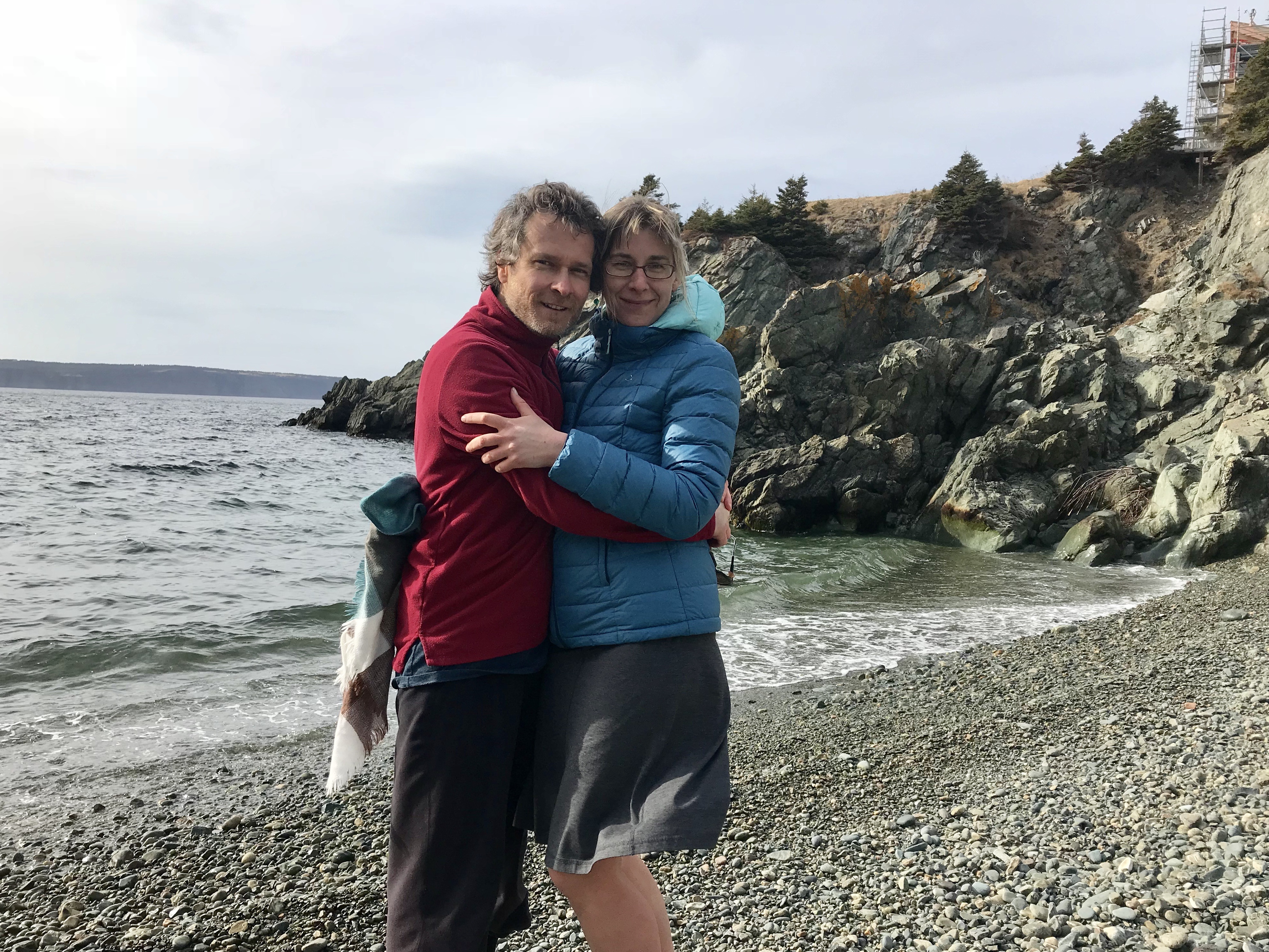May 8, 2018
This was the hard part.
Martina Krskova was about to run into the ocean for a short swim at spectacular Beachy Cove, not far from St. John's. The water was 4 degrees.
She stood behind her husband, Roman Krska, to shield the wind, hugging him to hold in body heat.
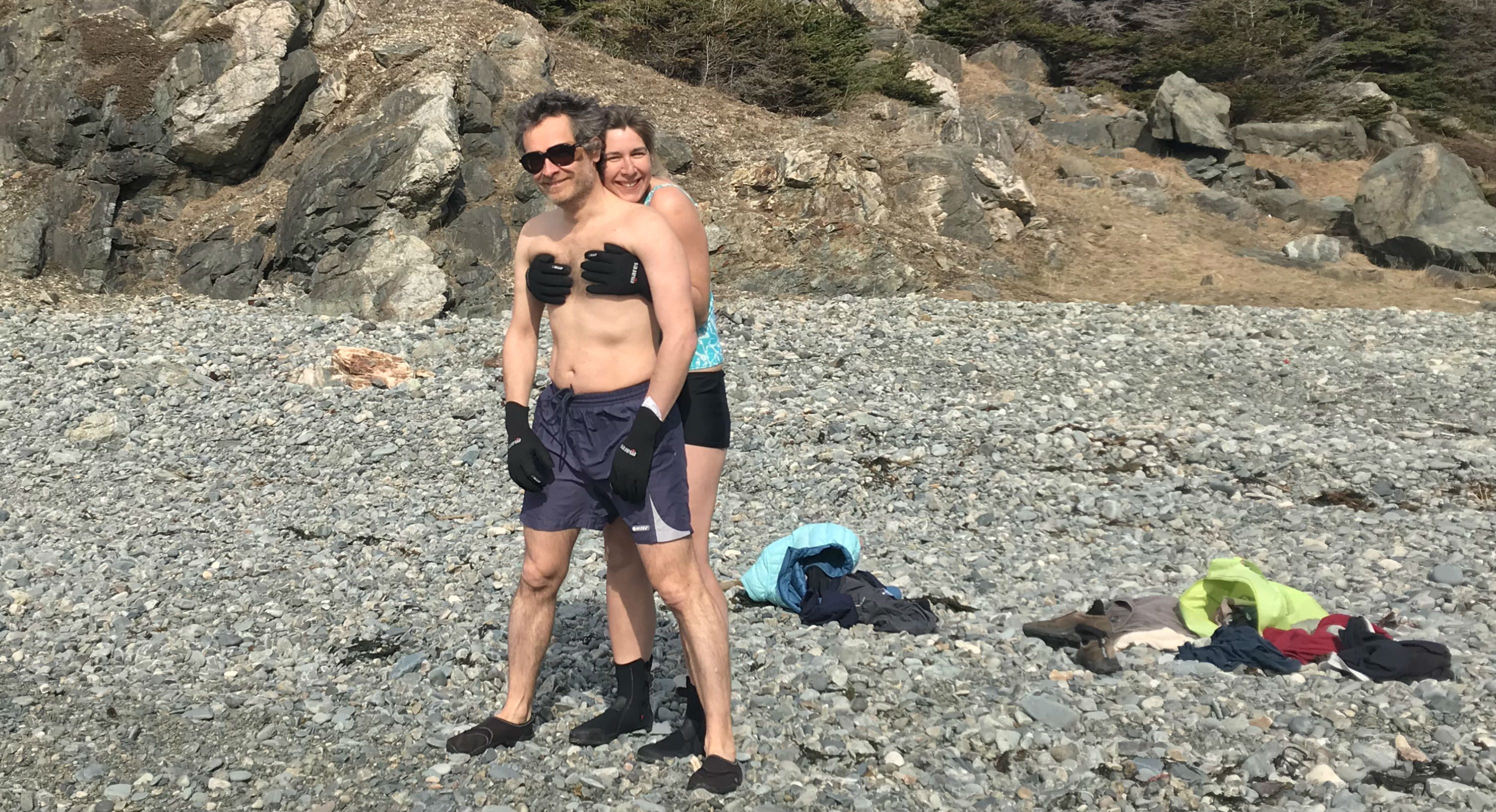
"It's a mental problem," Krskova said. "It's like physically once you are in the water, your body somehow does it. But the biggest challenge for us is to just to make up our minds and go."
Cold-water enthusiasts in Newfoundland and Labrador say their daring dips have a significant impact on improving their moods and energy levels.
A couple of minutes later, the couple surged forward, splashing into the water without complaint until each was deep enough to swim.
‘We just became addicted’

Once they were bobbing in the water, Krska let out a victorious whoo.
He described the sensation of being in water that cold as "something aggressive around me, what makes me fight."
They wore bathing suits — not wetsuits — plus booties and gloves to protect their feet and hands from rocks or debris that might be in the water.
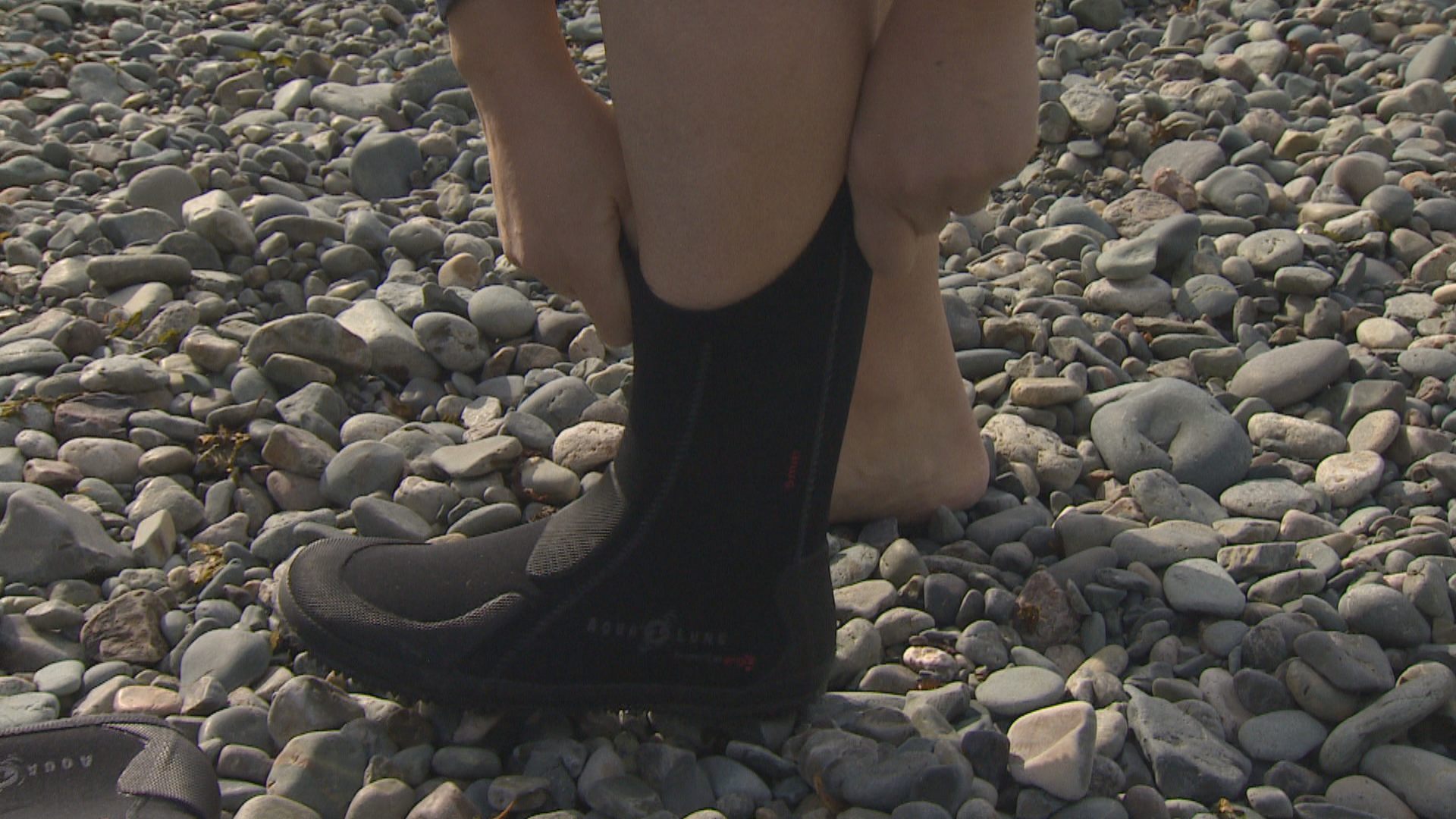
During those months when the sea is particularly cold, the couple do not stay in the water for more than two or three minutes at a time.
They started swimming in the waters of the North Atlantic off Newfoundland regularly last summer and continued until December, anywhere between five and seven times a week.
“We just became addicted,” said Krskova.
Swimming outdoors when it’s snowing
During a trip to their native Slovakia at Christmastime, with the trees and hills all around covered with the kind of snow you see in postcards, they sat in a small creek and then rolled in the snow afterwards.
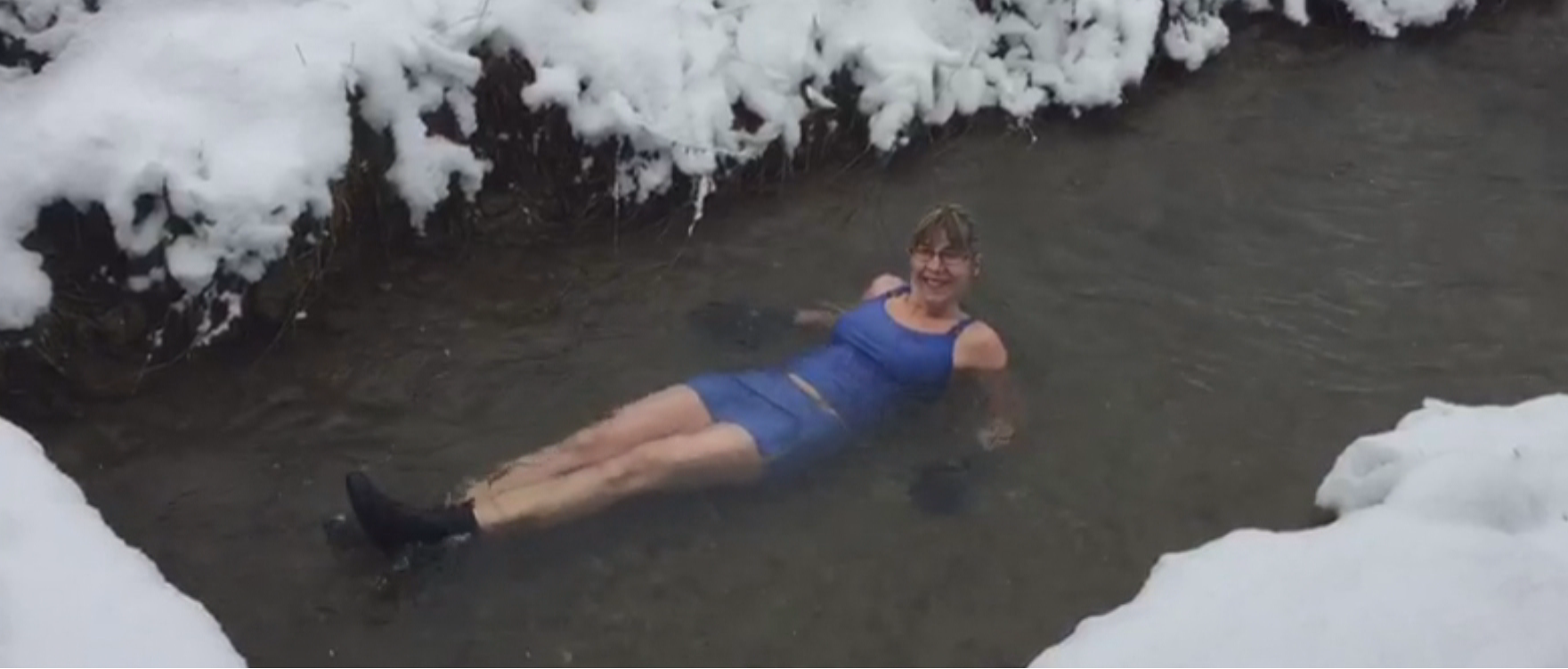
By mid-February, now back Newfoundland and Labrador, they once again went back to Beachy Cove.
It was rough and windy, and, of course, extremely cold the day they went.
"The February swim was probably the worst and harshest conditions," said Krskra. "That experience was like, questioning myself a couple of times — why did I actually go there?"
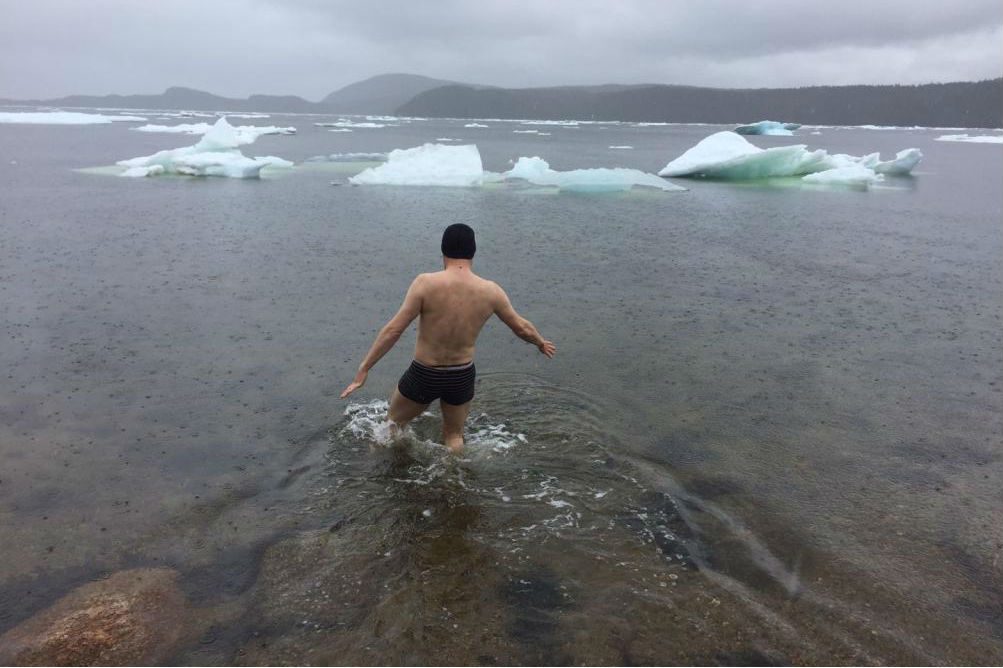
After that sobering experience they did not return to Beachy Cove, with its impressive waterfall and well-loved pebble beach, until late April.
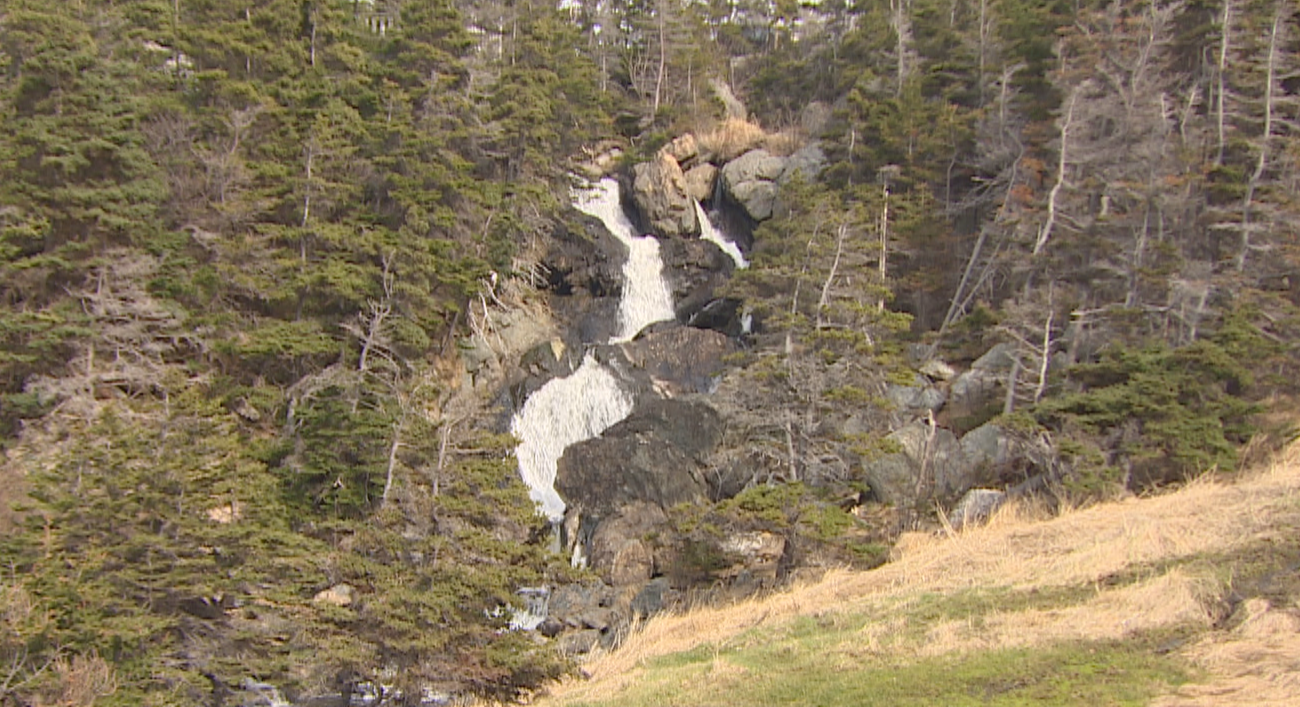
‘It felt like my feet were being burned off’
Another cold-water enthusiast, Brent Beshara, goes into the water year-round, not in the ocean but in the pond behind his house in Holyrood.
That includes cutting a hole in the ice in the wintertime so that he can tread water for his five-minute challenge. He keeps a safety rope nearby just in case.
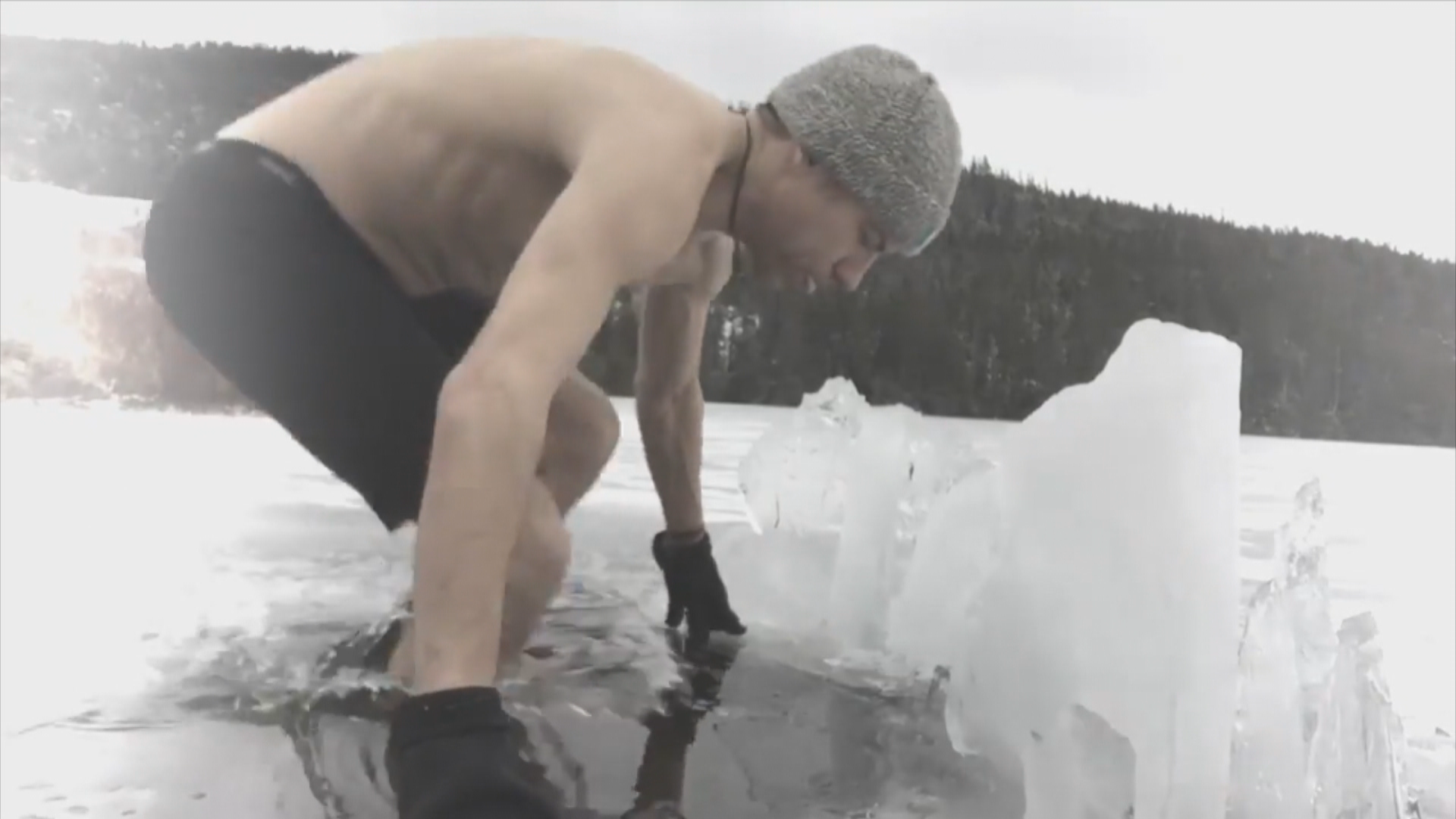
“At first it felt like my feet were being burned off,” said Beshara. “But now, two years later, I can sit easily for five minutes in the pond.”
In late April, there was no ice on the pond. Beshara had an old thermometer in the water — the kind you hang outside a window — but it seemed confused, showing a reading of -2 C.
Rest assured the water was cold. Very cold.
Beshara entered it quickly and wordlessly after setting a timer, focused on his breathing. He wore only long black shorts and a leather aviator-style cap.
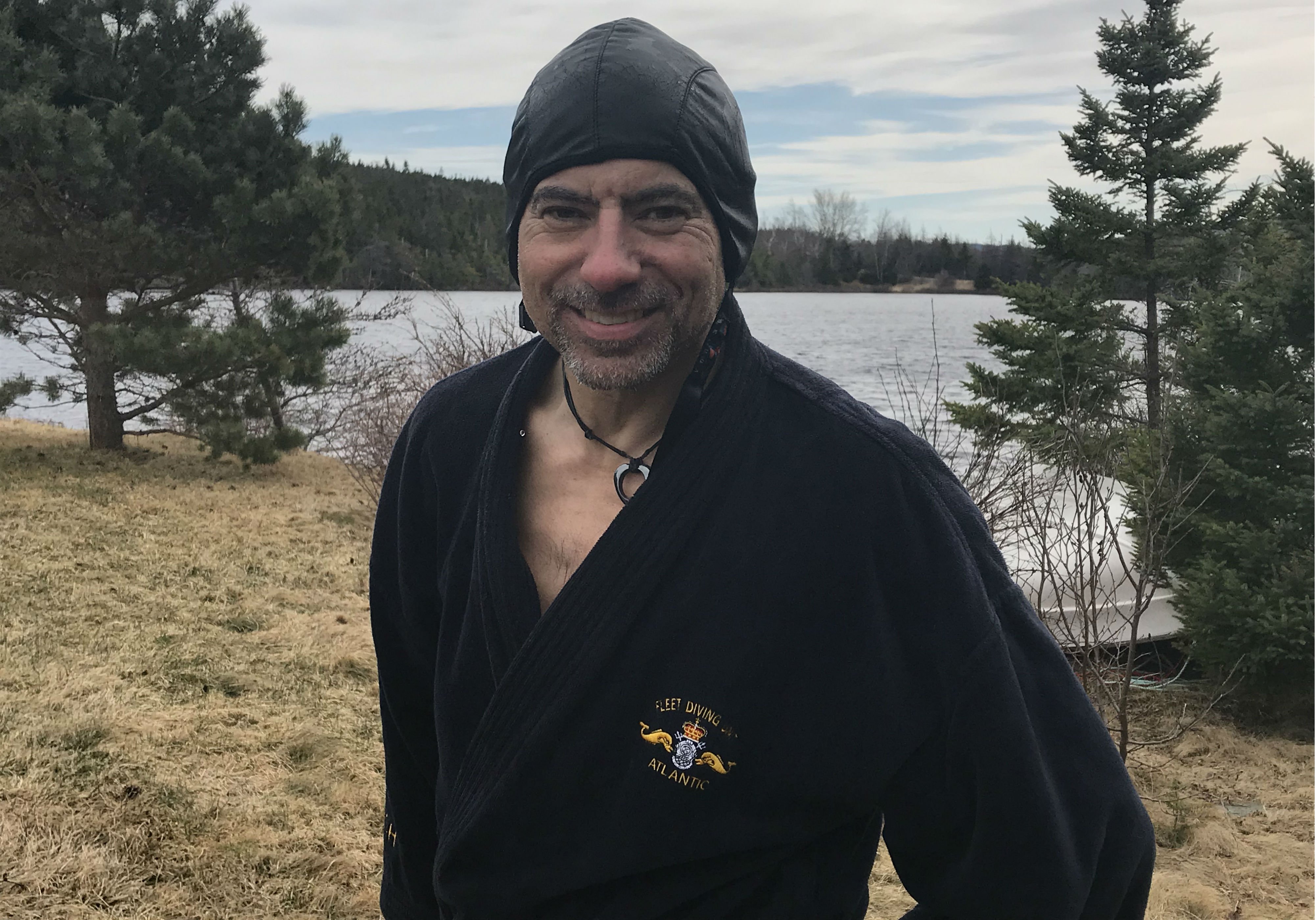
Five minutes later, as the timer started beeping, Beshara strode out of the pond, grinning although his fingers shook as he turned off the device.
“Right now I’m feeling exhilarated,” Beshara said, “Definitely. It’s a remarkable experience to expose yourself to that cold.”
Like the others, Beshara believes the nippy dips are good for his health, including his mental outlook. But he also relishes the challenge, saying the cold water provides a contrast to what he calls the luxurious times in which we live.
Inspired by ‘The Iceman’
Beshara started the practice after coming across an online video about Wim Hof, the Dutch extreme athlete who is also known as “The Iceman.”
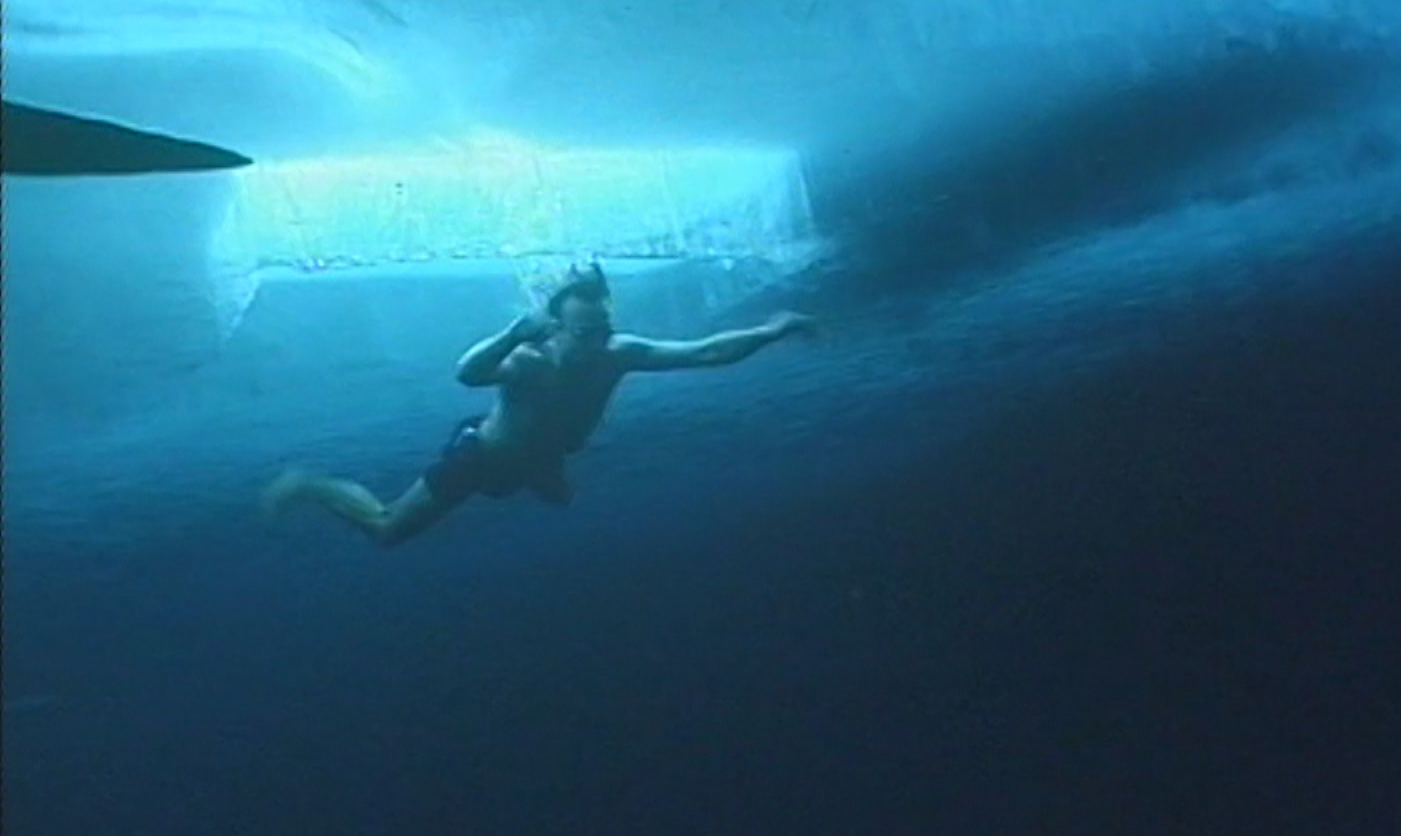
Hof holds numerous Guinness records, including for being immersed in an ice bath for 1 hour, 52 minutes and 42 seconds.
“The cold is a noble, righteous teacher."
He also ran the fastest ever half marathon while barefoot on ice or snow. That was in Finland in 2007, when he clocked a time of 2 hours 16 minutes and 34 seconds.
Scientists have studied Hof, trying to understand how he can endure extreme conditions for long periods of time.
Hof attributes his abilities to meditation and breathing techniques.
Beshara practices the breathing before going into the water.
“The cold is a noble, righteous teacher,” said Beshara. “I’m not paying my bills, I’m not shopping online … I can only be present to the moment.”
Beshara said that the cold enters his body immediately, that it feels like two rottweilers rushing in on him. But he said it gives him an opportunity to connect with what he calls his inner self.
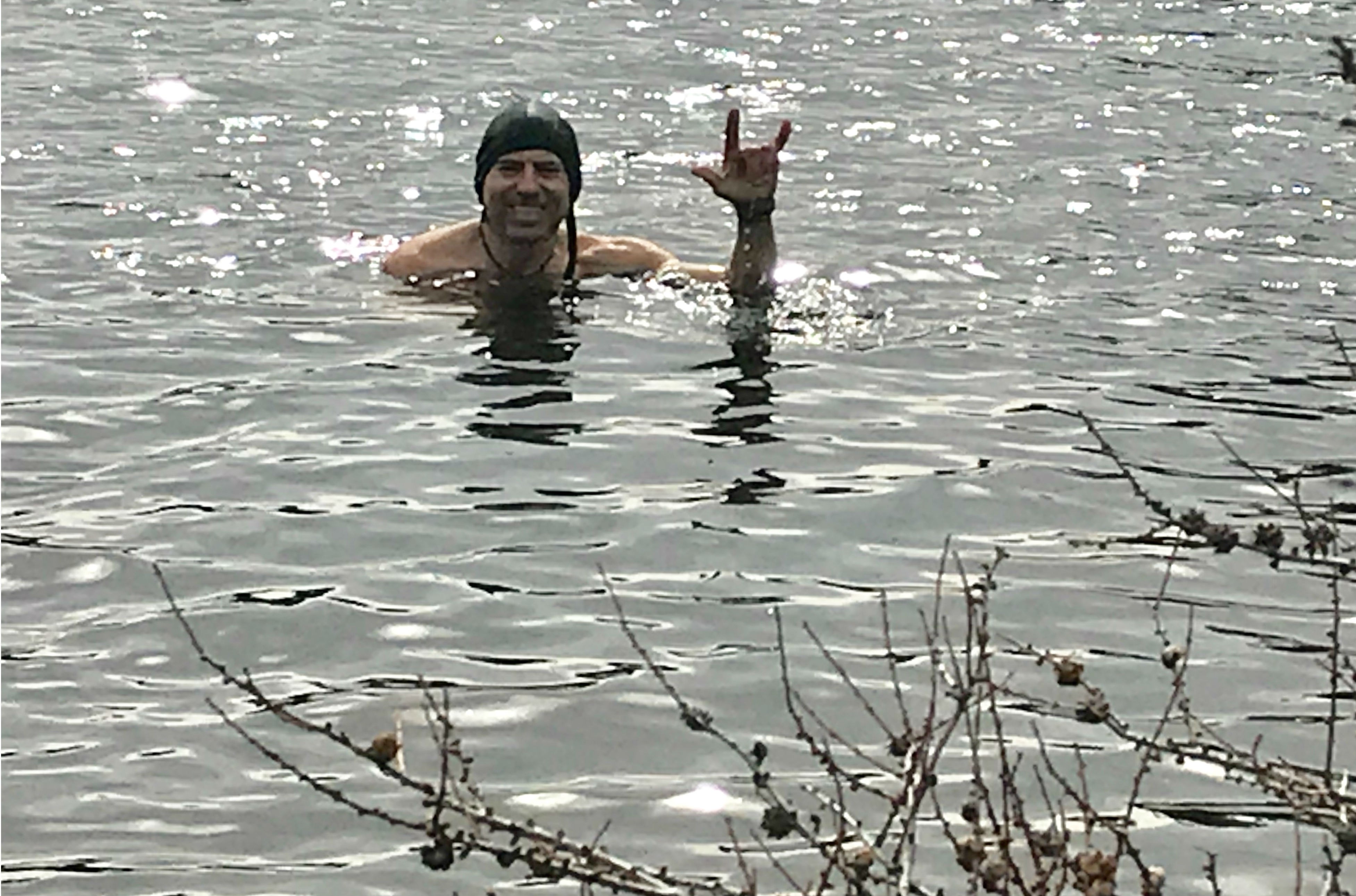
“Now showers, cold showers are easy-breezy,” said Beshara, smiling broadly, the water in the pond audibly nudging the shoreline while a windchime hung in a tree near his house made music in the breeze.
Scrambling for dry clothing
Krskova said that during her recent trip to Europe, she noticed that large numbers of people there are using Wim Hof’s techniques and exposing themselves to cold water, a commodity that Newfoundland and Labrador has in abundance. The couple does not practice his methods.
After emerging from the water at Beachy Cove, the pair scrambled for towels and to change into dry clothing, anticipating that they would start shivering quickly.
Krska peered out into the sunlit water, where the Bell Island ferry had just glided out of sight.
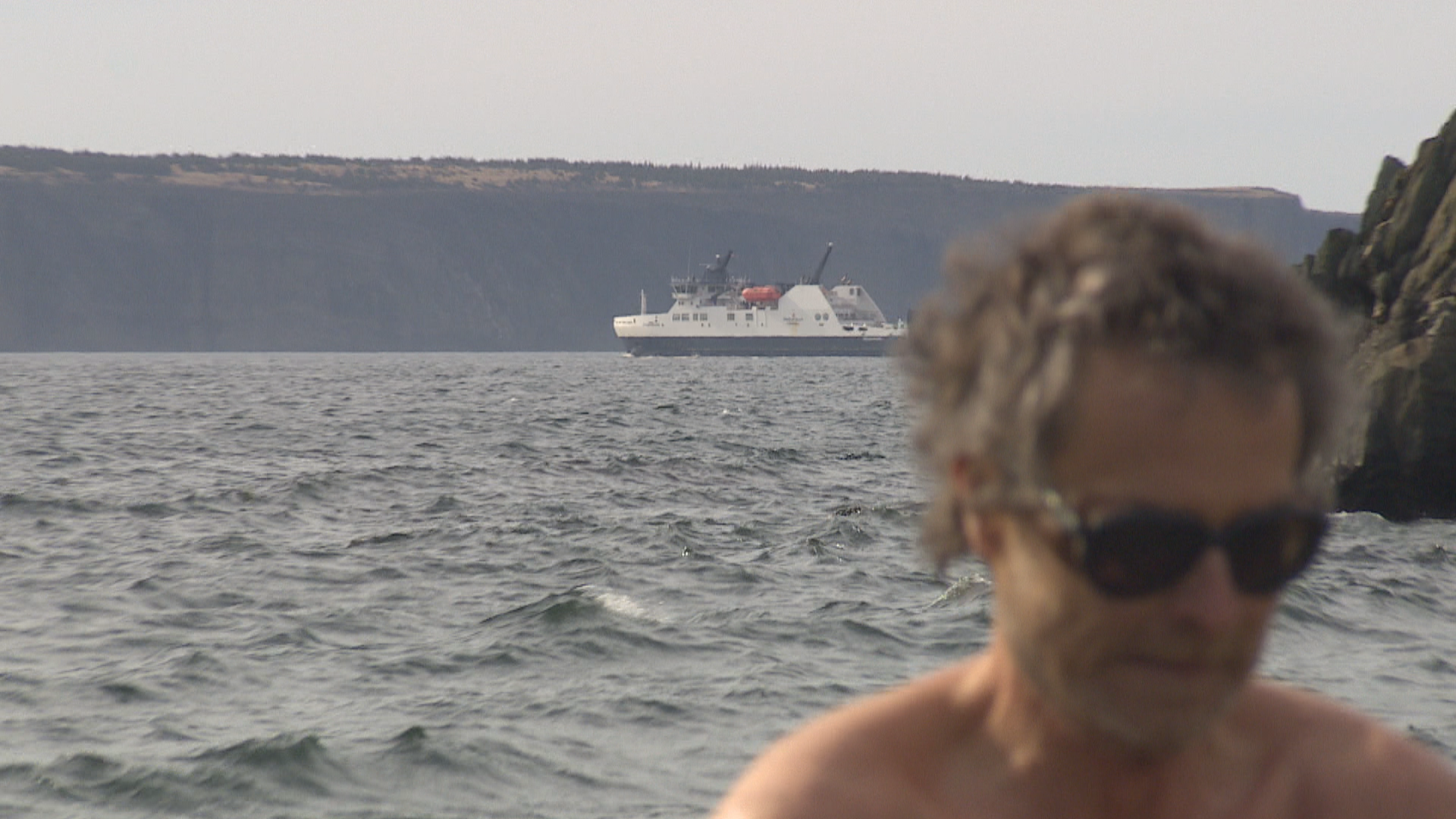
He felt invigorated, he said. “What is it — 5 p.m.?” he said, “And I’m just starting my day now.”
Krskova responded that she was cold but that it was great. She suggested to her husband that they do it again.
And then both spoke in unison. “Tomorrow!” they said, and laughed.
